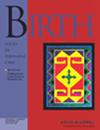The Efficacy of Psycho-Educational Interventions to Optimize Women's Sleep in Pregnancy: An Integrative Review
Abstract
Background
Poor sleep in pregnancy is associated with several adverse maternal and infant outcomes. Psychoeducational interventions may offer a safe and acceptable first-line intervention to help with sleep disturbances.
Aim
To identify and review studies that examined the effect of psycho-educational interventions on sleep in pregnancy and to identify moderators in the treatment effects of the interventions.
Methods
An integrative review methodology was used. A comprehensive search in five electronic databases retrieved 1250 articles. Eligible studies (n = 12) were assessed for methodological quality according to the “QualSyst” rapid appraisal tool. Data were extracted and recorded using a modified Covidence form. Quantitative data were summarized in a meta-analysis or narrative synthesis. Qualitative data were narratively reported.
Findings
Twelve studies with three different sleep interventions: Cognitive Behavioral Therapy for Insomnia (CBT-I), Sleep Healthy Education (SHE) and relaxation training were included. Given the variation in study methodologies and interventions, only quantitative results from RCT trials using CBT-I were summarized in the meta-analysis. CBT-I was found to be statistically significant in improving sleep quality in pregnancy (Standard Mean Difference = −0.78; 95% CI = −1.01, −0.54, p < 0.001). Few studies reported the efficacy of SHE and relaxation training. Potential moderators had no effect on the measured sleep quality outcome. Overall, psychoeducational interventions were acceptable to participants during pregnancy.
Conclusion
There is insufficient evidence on which to base the recommendations about the effectiveness of all psychoeducational interventions to improve sleep. Based on the available literature, CBT-I is an evidence-based intervention to improve sleep quality in pregnancy.


 求助内容:
求助内容: 应助结果提醒方式:
应助结果提醒方式:


